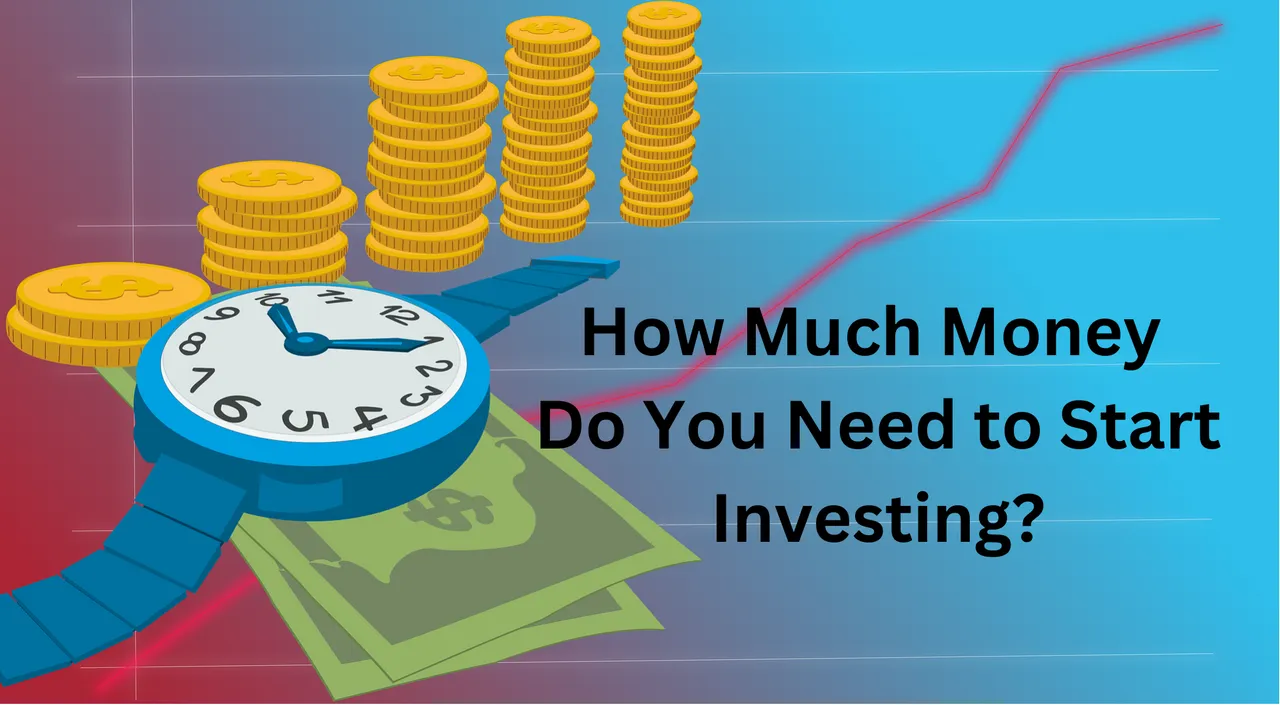As often said, the amount you can start investing depends largely on your current financial situation. The only way to find out exactly how much money you need to invest is to sit down and create a budget.

Source
You'll need to add up all your expenses, including mortgage payments, utilities, groceries, entertainment, taxes, insurance, car loans, credit card bills, student loans, daycare costs, and so on.
Then subtract your monthly income from that total, and see where you stand. Once you have an idea of how much money you earn each month after paying your bills, it's time to think about investing.
Here's how to calculate the amount you should put toward your retirement plan each month:
• Take your annual salary and divide it by 12 months.
•
• Multiply your number by 1.25% to cover the expense ratio charged by most mutual funds.
•
• Now, take that sum and deduct your employer's matching contribution.
•
The rule of thumb used above assumes you contribute to a 401(k) or 403(b), which is a qualified pension plan. Most employers offer some kind of retirement savings plan to their staff, and they match employee contributions. A matching contribution means that the company will give you free money if you agree to invest in the plan.
For example, if your employer matches your contribution dollar for dollar, your total savings will be 25% higher than what you would have made had you simply saved without the match. That's why it pays to participate in any workplace retirement plans available to you, even if you aren't contributing as much as you can afford.
Even if you don't work for an employer that offers a retirement plan, there are other options available to help you save for the future. You could consider opening a Roth IRA or traditional IRA. Both provide tax-deferred growth and are available to almost everyone.
The main difference between these accounts is that with a Roth IRA, your earnings are tax-free in retirement. With a traditional IRA, you'll pay taxes on any earnings as soon as you withdraw them, which means you might owe more in taxes than you were expecting. However, because you won't receive a tax deduction for your contributions, the money will grow faster over time.
Finally, if you're self-employed, you may want to consider setting up a SEP IRA or a Solo 401(k). All three of these vehicles will let you save a lot of money without having to worry about taxes.
Saving money isn't easy, but once you start doing it regularly, you'll begin to feel better about yourself. It's important to remember that saving money doesn't mean giving up everything you enjoy doing; it just means spending less than you earn. In the end, building wealth starts with a budget.
If you're serious about improving your financial situation, you need to develop a sensible budget that takes into consideration all your expenses and allows you to save at least 10% of your income every month. Once you do that, it's time to start investing.